
by Melanie Oda (Japan) | Nov 30, 2016 | bilingualism, International, Motherhood, Parenting, Uncategorized
Like an increasing number of families in Japan, my children are being raised in a bilingual environment. We started this saga back in the days before the Internet took over the world, and I had to actually buy and read books to fill my mind with anxiety-inducing conflicting opinions. Now I can meet my anxiety quotient with a few clicks each day, much more efficient.
I found then, and now, that there is a lot of information geared towards young children and parents who still have their hair, having not yet ripped it all out in frustration when confronted by relatives or educators who don’t understand bilingualism, or worse, are prejudiced against it.
My kids are now 9 and 11, in 3rd and 6th grade at local Japanese schools. All of their education has been in Japanese. Our home life is basically in English, though the kids speak Japanese with Dad. He just isn’t around as much due to long working hours.
Some friends and I started an English school that focuses on literacy for already bilingual kids. We meet three times a month on Saturday. This is their only “formal” English training. Everything else has been left to me.
Which is every bit as hard as it sounds.
I thought I would share with you today my top tips for raising bilingual kids without losing your sanity. Please bear in mind that mine are 9 and 11 years old. I would love to hear top tips for teenagers, so please share your ideas on the comments!
1) Input input input. I have an unwritten rule that all media in the house should be in the minority language. (In our case, that’s English.) But we all know how much kids love rules…so I make sure to have a plethora of attractive English options, while keeping the Japanese options limited to network TV.
2) Encourage siblings to speak the minority language to each other. I know that this one is hard. Siblings have their own relationship with each other separate from their parents, and we don’t want to be up in there and intruding. Some things like school or homework, is just be easier to discussed in the majority language and I try not to get too worried about that.
Having games, puzzles, something they can do together that uses the minority language is one way to encourage them to use it with each other without having to get in their face about it. “Operation,” for example, is funnier in English. Mad Libs or other word puzzles are great! They keep talking about it, in the same language, for quite a while afterwards.
3)Read- We all know that reading to your children is important, but perhaps even more so for bilingual children. Even when you think your kids should be reading to themselves, keep reading to them. This will help emphasize good grammar structure (sometimes strange patterns can get kind of fossilized within a family.) Also through reading you can expose your children to situations they would ‘t normally have a chance to encounter, and all the vocabulary that comes with that.
4) Identify vocabulary holes. Bilingual people often have greater vocabulary in one language about a particular topic than the other. My children probably don’t know words like “ladle” or “whisk” in Japanese because they aren’t exposed to those terms outside of the home. Conversely, there are lots of words related to school life that they will not learn in English unless I make an effort to imagine where those holes will be and prevent them. I find often that when talking to each other, they fill that space with the Japanese word This phenomenon is called code-switching.
5)Don’t panic over code switching. According to most experts, code switching isn’t really a problem; But as a parent, it can be disconcerting! Personally, I repeat what the child has said with the correct English term, if there is one. I don’t usually make them repeat it in English or point out they have said something incorrect.
6) Use background music. I find that if the background music is in English, pretty soon everyone is speaking English!
7) Routine is your friend. Getting the children to do their English reading and writing was a huge battle in the beginning, but we built it into their morning routine. There are some days when we don’t get to it, and even more when not as much gets done as I would like, but because we have a routine in place and an expectation that it will get done, it’s easier to get back on track and stay there.
8) Keep a sense of humor. Raising kids is hard work, full stop. Adding another language to the mix adds another layer of difficulty. But it also adds another layer of cute mistakes and funny memories. Just now I asked my son to come back by a decent hour, and he exploded that he would come home an hour early. Um, that was “decent hour,” not “descent hour,” which is not even a thing.
Do you have any tips to add? Any insight into bilingual teens? Please share your thoughts in the comments!
If you ask Melanie Oda where she is from, she will answer "Georgia." (Unless you ask her in Japanese. Then she will say "America.") It sounds nice, and it's a one-word answer, which is what most people expect. The truth is more complex. She moved around several small towns in the south growing up. Such is life when your father is a Southern Baptist preacher of the hellfire and brimstone variety.
She came to Japan in 2000 as an assistant language teacher, and has never managed to leave. She currently resides in Yokohama, on the outskirts of Tokyo (but please don't tell anyone she described it that way! Citizens of Yokohama have a lot of pride). No one is more surprised to find her here, married to a Japanese man and with two bilingual children (aged four and seven), than herself. And possibly her mother.
You can read more about her misadventures in Asia on her blog, HamakkoMommy.
More Posts

by Coretta Vermeulen | Oct 3, 2016 | Children with Disabilities, Disability, Europe, Hospital, Netherlands, School, Special Needs, Uncategorized
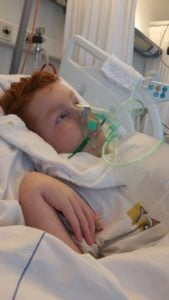 While bombs are being dropped on rescue convoys in Syria again, while moms have to worry about mosquitos giving their children diseases and deformities, while there are moms out there losing their whole family due to war, hunger and hatred, and mothers who have to fight for safety and food for their children every single day, it is with a little reluctance that I share this story.
While bombs are being dropped on rescue convoys in Syria again, while moms have to worry about mosquitos giving their children diseases and deformities, while there are moms out there losing their whole family due to war, hunger and hatred, and mothers who have to fight for safety and food for their children every single day, it is with a little reluctance that I share this story.
Compared to their struggle, mine is just minor. Because compared to them, I’m a swaddled, nurtured, spoiled, little Western brat, who can get all the help needed. There is always someone who has it worse then you, and I am eternal grateful to live where I live, and have what I have. Misery has made me humble and grateful and able to see things in perspective.
Yet, our life is no picnic, no walk in the park.
Fygo was born healthy, on April 2nd, just past midnight. It was a C-section, so the doctors could hold it until April Fools was over. I was tired after 33 hours of labour, and stoned out of my mind from the painkillers and anaesthesia. I thought he was UGLY!!!! I wasn’t wearing my glasses, and I’m blind as a bat, and the drugs influenced my judge of character, but I didn’t care, I laughed and laughed. Then daddy came back from counting fingers and toes. “He has 11 fingers!” he said, and he was KILLING me. Fygo happened to have an extra phalanx on the mouse of his thumb, dangling from a small vain. “Ugly” became my kind of “weird”. After recuperating and having stitches, I was brought to my room. My mom was sitting there with our son on her lap, watery eyes, totally in love…. with his red soft hair…. I was able to look a bit more closely, and immediately fell in love with him, too. He was so welcome. His dad and I met in our mid-thirties, on the internet, and if we felt like having a bunch of children together, we had to hurry up.
So there he was, our 11 fingered carrot top. I never expected that, but I love ginger. Lucky bastard, he would steal a lot of hearts, starting right that April 2nd 2006.
He was nervous and anxious from the beginning: we had to swaddle him, otherwise he would wake up from his own movements. But during waking time, he was so relaxed. A little timid, especially around groups of people, like on birthdays, and especially when the attention was fixated on him. A lazy one too: he didn’t turn back when laying on his tummy, he just started moping and then fell asleep with his head on his hands. Or when I put a toy just out of reach, he would try one or two times, and then turned his attention to a closer toy. I could sit him up right, go around the house doing all the work that needed to be done, and come back to find him facing the same way I had put him to: he didn’t move an inch. And yeah, he was a bit chubby and clumsy, but I love that in babies.
Almost 14 months later, his sister Benthe followed. Yiihaa, we could also make girls! Fygo was crazy for his sister. Before saying his own name right, he knew hers. When he spoke of her, he got that dreamy look in his eyes. Asking “Get Benthe?” as soon as I put her to bed.
But we went through a storm at that time as a couple. Some major health issues for my husband, I was losing my pregnancy hormones and fell into depression, money problems, work related problems for the both of us, my eldest got bullied at school and was totally misunderstood, and school blamed it all on him (“he has to grow stronger and fight back!”). And of course, on top of it, though the little girl butterflied through everything, Fygo was getting more and more upset. He changed rooms so Benthe could get the baby room, but we didn’t handle it right. Oh, we did what we could at that time, which was not much: hubby having a hernia, me depressed. But we didn’t talk it through with him, we just did it. He began waking up every night, crying. We couldn’t take him upstairs to our bedroom, because he was so used to his own crib. So we had to go to his room and calm him down there, in which we hardly succeeded. After a while, we were all so tired. We couldn’t do it anymore. We started shouting from our bedroom at him to shut the **** up. There were times that I wanted to smack him, just from frustration and exhaustion. I was the one going to his room all the time, because hubby could hardly get up due to his back problems. We had no family to help us out, mine lives 250 km away, and on hubby’s family we couldn’t rely.
But when he was sleeping, he seemed to glow, he became almost transcendent. We knew he would touch a lot of hearts, he was one big lump of unconditional love.
May 2008. We had a holiday full of Dutch festivities: Queens Day, remembering the casualties of WW2 on May 4th and celebrating our freedom of that war on May 5th, and some Christian holidays as well. My bonus daughter was visiting with her boyfriend, things were looking better, I was looking forward to summer, we put up the pool in the back yard (in which I had to retrieve Fygo because he went under with no safety floater on yet!!!) and were busy redoing the front yard. I was changing jobs and would become a driving instructor. I just had had the interview that day in May, and getting ready to help hubby in the front yard. Fygo was playing in the heaps of sand on the sidewalk, with a neighbour friend. Just when I was about to change my clothes to working clothes, he went with his friend to their house a block away. We always looked out for each other’s children. So we watched them go. Digging, looking, digging, looking, digging, looking. The door opened, the door closed: they were safe.
Only this time, our neighbour was standing with two kids on her bike, ready to pick up her other children from school. This time, she couldn’t bring him back to us. So he went wandering….
After a few minutes, hubby had a bad feeling, like being cut off from something. Where was Fygo? Was he inside our neighbour’s house? I went looking. He wasn’t there. I walked around the block. No Fygo. But still, I was not worried. He was a much seen, much loved personality in the neighbourhood, maybe someone had called him inside, not seeing him accompanied by one of us. Crows were circling the house.
Hubby was going nuts, but I wanted him to stay home in case someone was bringing him back. I got angry at hubby, because if HE felt it, surely I would feel it too! I was his MOM! And more over, Fygo was clumsy, he couldn’t get off the sidewalk without falling to his butt first, and he was startled by passing cars: he would never cross the street.
I went looking by bike, in the direction of a friend that had a dog he loved, crossing the street and passing a pond. Hubby came to the intersection, we talked, and he said he wanted to help searching and went the other way. Still mumbling about him not falling into 7 ditches all at once, I cycled around the pond. There was some debris there, but that was not extraordinary. Almost back at the beginning of the pond, I saw him: floating, face down, his red hair and red shirt waving in the water. My world stopped……
I threw down my bike, jumped into the water, very keenly remembering my First Aid lessons of 15 years before: get him out face down, don’t let more water reach his lunges, no CPR until the water is out, don’t push his heart with your whole hand. I screamed and screamed, and as hubby arrived, so did a complete stranger who was working in one of the surrounding homes, to take over CPR. The son of our physician who happened to pass by, brought his dad, Emergency was called, and in no time the place was crawling with ambulances, medical staff, and people who wanted to have their children to take a good look at this boy dying and these parents crying their lungs out to all the gods in heaven and hell and all their dead relatives to please give him back, don’t keep him there, bring him back, let him go, he’s ours!
Another neighbour happened to be a police officer, and sent them away. She had to restrain herself not to use her baton.
I’ll spare you the details of how many times we were told to say goodbye, the coma, the horrible and continuous muscle contractions, the screaming, the jaw locks with his tongue stuck in between. In the police car following the ambulance to the hospital in Amsterdam, at some point we said: He’s back. He’s going to be okay. At that point, his heart started beating again. And unconsciously decided, that we would make the very best of it, stay positive, not buy into the medical jabber. In both hospital and rehab centre, we were famous for our fatalistic positivism. No one could beat us down. Fygo would NOT die, he would live, and he would do what he always did best: enchanting people, mesmerizing people, touching hearts.
We ended up being in hospital and rehab for 7 months. We slept in Ronald McDonald Homes, with our daughter Benthe. She was the light of our life and really saved us. Rehab didn’t really help, but then again, it was way too soon to see real progress, at least for him: we have seen miracles there, but always for others, not for us. Nevertheless, we celebrated every miracle happening. Being with other parents at the worst of times, needless to speak, we understood each other.
From day one, we said: this will work out for the best, it will be fine, all is well and we will get through this. Also to family and friends, we have been over-optimistic. While the world around us was waiting for our breakdown in the midst of still scary times, we pushed through and found each other. We did everything in our power to keep finding happiness in the smallest things: celebrating the Soccer World Cup and watching the games on a big screen at the hospital with others, drinking way too much beer. Taking strolls through the park. Making passionate love with each other. Being so proud of our other children, because they handled it so remarkably well. Seeing our daughter under the shower, unable to stand yet, sitting there with her bath toys, singing and talking and having fun. Sharing experiences with other parents.
And of course: crying our eyes out for what would never be. Naming all the monsters that we could possibly encounter, the what if’s. Feeling guilty, asking ourselves if we really were not to blame. We never blamed each other though, only that freaking duck he possibly tried to follow.
We were well aware of the situation. We were well aware we could lose him. We were well aware (after realizing and experiencing that waking up from a coma is nothing like in the movies) of the consequences of his condition at the time. We didn’t look forward more than an hour, a day tops. But we could not let reality take over our mood, our faith, our love. So doctors could talk all they want, that harness of positivity was destroyable.
Until rehab….
Fygo had had a nose probe for feeding since the accident. This had worked properly so far in hospital. He never pulled it out, not even in spasms, but when it became apparent for us that he would not start eating by himself soon, we decided to get him a PEG probe (or at least, that’s how it’s called in Dutch; PEG stands for Percutaneous Endoscopic Gastrostomy, meaning basically a hole through his belly, having direct access to the stomach: a literal “belly button”). If need be, we could pull the thing out and the hole would be healed in weeks.
But first, we transferred to a rehab facility, well known for their program for young patients up to 26 years of age, who suffered from brain damage, next to a good hospital where he could get this PEG probe. We were just starting to get psyched about the possibilities there, hearing the miracle stories of other patients and parents. But also exhausted, having a difficult time because Fygo wouldn’t stop crying and screaming and we couldn’t figure out why and couldn’t do anything for him. He was so stiff, we could have laid him between two chairs and use his body to sit on.
We were just starting to get kind of a picture of the future, when the nurse in charge of Fygo accidently pulled out his nose probe, and some of the feeding had gone back into his lungs, causing instant pneumonia. So the PEG surgery was cancelled, and the little guy had to fight for his life again instead. Since then, he has had respiratory problems on and off. Especially in the beginning, when we had all our hope set on the rehab facility and their program, this was a blow.
Fygo couldn’t start the program, which would have been most helpful shortly after the brain damage was inflicted. He was way too ill. And every time he recovered, but every time the team and us made plans to start, he got sick again. He obviously thought differently. We have been in rehab for a long time. We watched patients come in, way worse than our son, see them wake up, regain consciousness more and more, growing into their bodies again, increasing vitality, starting to eat and talk. All patients had changed of course, they were not who they used to be, some “residue” of their trauma was still active, but I could kill for his full consciousness and a strong and healthy enough body to work with for our son.
But never were we jealous. We celebrated each other’s victories, big and small. Seeing other people’s children recover made it bearable for us. We came across a South African neurologist, who had prescribed the sleep medication Zolpidem on a coma patient of his, because he was so restless. To everyone’s surprise, the patient didn’t drift off to sleep, but awoke and moved his finger, after having laid still for 10 years. We tried it. It worked a little. But brain damage due to lack of oxygen is very different from that which is inflicted by trauma (a blow on the head).
We heard of hyperbaric oxygen therapy. This is usually given to people with burn wounds and emphysema or other lung diseases, but clinical research showed more progress in healing brain damage too. Clinical research doesn’t count though, so there was no compensation whatsoever, and the facility that treated patients with hyperbaric oxygen couldn’t treat him anymore, even if we paid for it ourselves. The insurance companies wouldn’t allow it. We could still do it in the US, but it is too expensive for us. Since a few years, the physical therapy that accompanied the hyperbaric oxygen therapy is given here in the Netherlands, but his body is too weak now.
We read into every article, every conversation, every possibility that could help him, with no permanent success. After 7 months of rehabilitation, living in Ronald McDonald Homes and seeing no further progress, we left for home. Fygo could not live with us in the house we rented, and besides, it was too emotional for us to stay there.
We homed Fygo temporarily in a facility with severe multiple handicapped people. He was the youngest. The facility was old, kind of dirty too: it would be torn down and rebuilt, but until then, this was the situation. The other “kids” were noisy, often sick, we went through some deaths at his department, and though the staff did everything they could and with a lot of love, their ways were old fashioned, too. It was horrible to leave him there, and knowing it was temporary kept us going.
It was there that we met with the great guy who is running the school Fygo is attending now, so this period did have some good come out of it. We found another home, away from where we lived, in a much nicer town. My oldest left to live with his dad, a thing he had always said he’d wanted when he was to go to high school, and for us, that was the best. We had to focus on Fygo, and on ourselves.
The new place has a bed and bathroom downstairs, and we got all the help we needed from municipality. They have sponsored so many aiding facilities in and around our house to help us take care of Fygo. They even sponsored a van! Our consultant even asked her whole family to contribute towels and cotton cloths for us. We truly felt welcome in this community, even though they knew we could not give it back, and we are still grateful for that.
We brought Fygo home, still in a vicious cycle of illness, crawling back up, hospitalization, his almost dying, our almost dying, being sick ourselves, depression, addiction, trouble at work, and so on. We didn’t live, but we survived. It was only survival mode that saved us.
Fast forward to this day. Fygo turned 10. He’s a carrot top with a man bun and a grown up body odour now. After his last stay at the hospital this March, we had to have “the talk” again. For the first time in 8 years, he had to be on respiratory support, because just oxygen wasn’t enough. He had pneumonia, and on top of that the flu, that hit really hard here in Europe. What if this happens again: CPR or not? Support or not? How far do we go? How far will the medical staff go? Realise that puberty often means getting sick more, resulting in death. It was a hell of a time again; we went through a lot.
But it helped us say: NO. We don’t agree with that. This is NOT okay. Whatever you say doctor, but NO. NONONONONONONO! This is NOT going to happen. You revive him until he can’t go on no more. HE will show us, and WE will know. And we WILL decide then to do what’s best for him. We are no fools, and we know when to stop. But we’re not anticipating on it, no effing way. We have to live, not think about dying. Besides, can we please stop giving him the milky tube feeding stuff, which only contributes to his slimy lungs?
We decided to go our own way. I make his own food now; I came across a whole community on Facebook that blends normal food for tube feeding. I can add all the good stuff that helps his body grow stronger and give him a more normal intestinal function. And since he does not have to focus on staying healthy, his learning abilities grow as well.
Because, although he can’t sit, hold himself up, let alone stand or walk, has no neck balance, cannot eat or swallow or speak, there is a normal, 10-year-old boy in that battered body of his, that wants to be accepted, play, love, communicate, have friends. He doesn’t think there’s something wrong with him. He feels our moods. He knows when we’re down. He knows it’s because of him, and therefore accepts that he goes on sleep overs every week. But he also knows we love doing this.
Him going to a special class in a normal school, is magic. He learns to work with his eye tracker computer, and in this last 6 months, he has shown us all that he understands everything. He is showing us he can work with that darn computer as well. We see so much of the personality that we’ve come to know in his first 2 healthy years. Communication is key. And he’s still lazy: he knows we know him so well, that he doesn’t really need his computer to tell us. He still will do something one time and one time only, so we make a fool out of ourselves when we want to show other people what he can do. He still doesn’t like crowds or getting attention. He doesn’t want to be filmed while working. He makes jokes and laughs his crooked smile. He still winds women on his little finger with that spotted face and dreamy look.
We KNEW right away, from the day he was born, that he would touch people’s hearts, and he does. Never foreseeing how of course, and if there would be a pill or a procedure to let him be “normal” again, we would gladly take it, but even though the pain and the suffering and the almost deaths and the almost divorces, this life is still worth living, and it has brought us so much more then we could ever experience had we lived a normal life.
Fygo is still not in the clear, and maybe he never will. Right now, his spine is a mess and his lower rib is about to touch his pelvis, and we will have to decide whether he should get surgery or not. Well, actually, not is not an option. It’s more like: when.
He’s grown so fast and whatever muscles he still has are so tight, that his thigh bones are like parenthesis, and completely dislocated. His knees have been broken several times, without clear reason: he’s become fragile from not moving at all. His muscle tissue is nihil. Epilepsy is becoming a daily frenzy.
So yeah, we know we will outlive him. Thank God we will. But until then, we will get everything possible out of this life we gave him, that is our responsibility. And it is not about giving him a better chance of survival through intensive therapy, medication and working hard on recovery. He will not recover, because he already IS the best version of himself. We would be fooling ourselves if we think he could get any better.
But to us, it’s about showing him this beautiful world in a way we all enjoy. It’s about pleasure. It’s about fun. It’s about making memories. We still want that side cart on daddy’s motor cycle, because we know he will love it. We still want to go on holidays and show him other parts of the world, and have him in an airplane. We still want a farm with tons of animals that react on his energy.
We want him to know that whatever has happened, it’s okay. It has to be.
Otherwise, life and all this, is pointless.
I'm Coretta, a former teacher. I'm married, and the mother of an 18 year old son, a 9 year old daughter and a 10 year old son, and bonus mom and grandmomship. Our 10 year old son Fygo has brain damage due to near drowning and has no use over his body, except for his eyes and ears. He lives with us at home and visits a special school. We try to live "a normal live" as much as possible.
More Posts









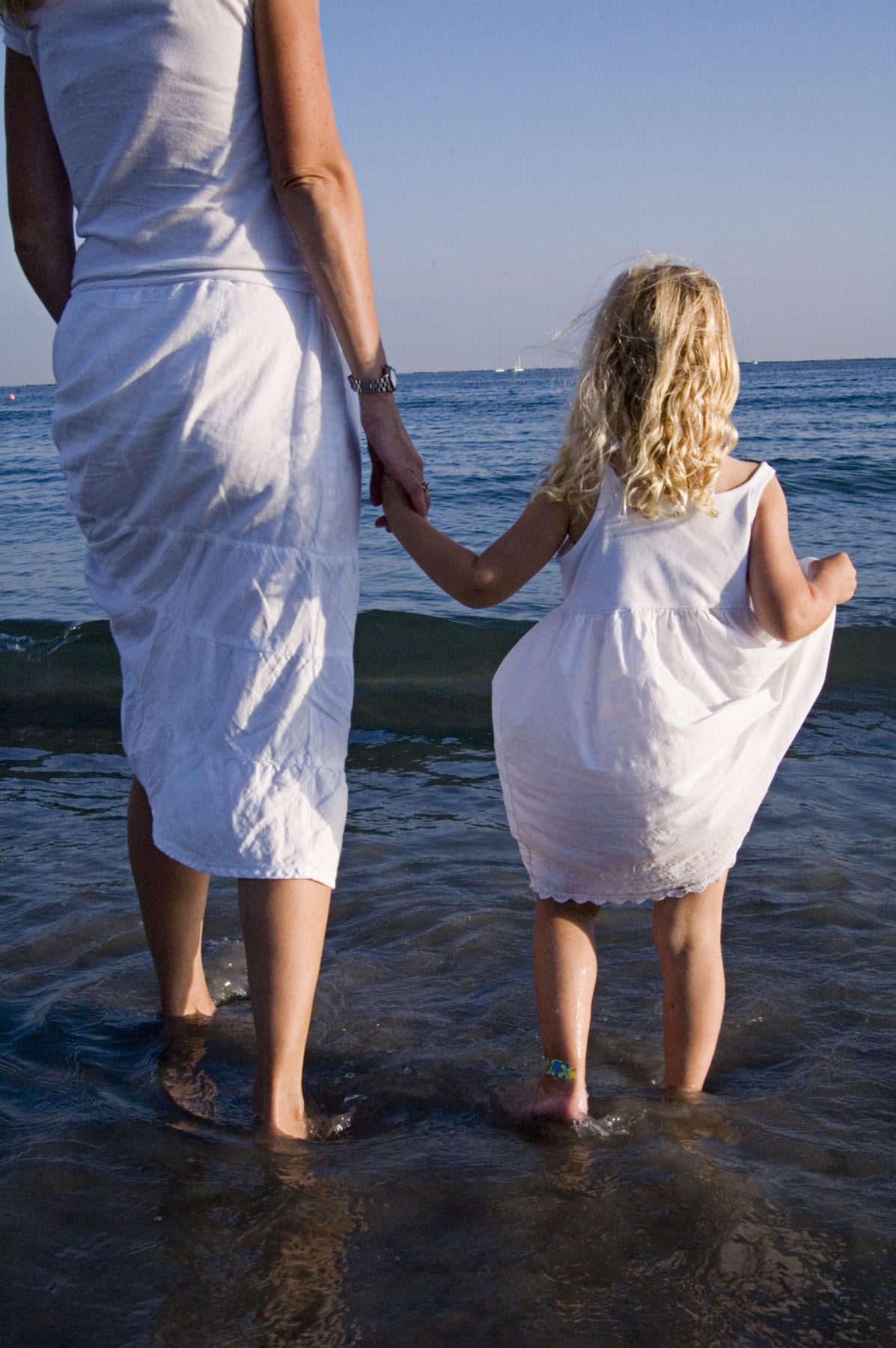
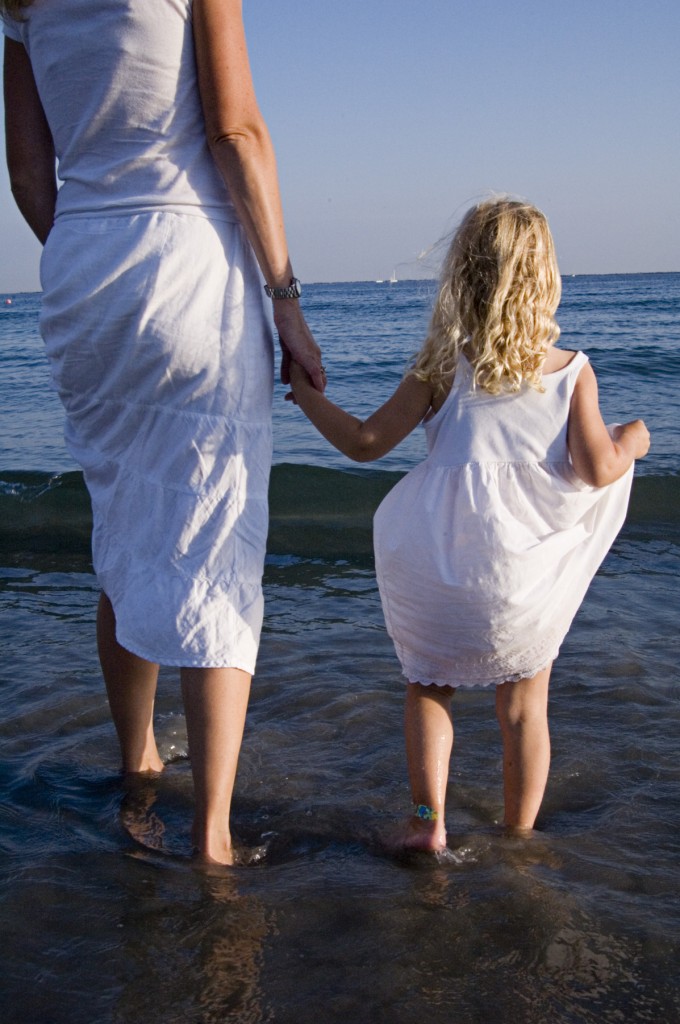

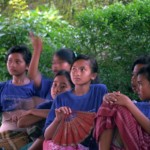
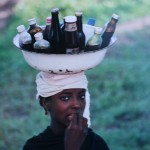


 While bombs are being dropped on rescue convoys in Syria again, while moms have to worry about mosquitos giving their children diseases and deformities, while there are moms out there losing their whole family due to war, hunger and hatred, and mothers who have to fight for safety and food for their children every single day, it is with a little reluctance that I share this story.
While bombs are being dropped on rescue convoys in Syria again, while moms have to worry about mosquitos giving their children diseases and deformities, while there are moms out there losing their whole family due to war, hunger and hatred, and mothers who have to fight for safety and food for their children every single day, it is with a little reluctance that I share this story.



